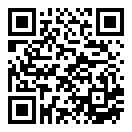Pages:
33-49
Receive Date: 2026/02/02
Accept Date: 2026/02/02
Abstract:
Many countries have tried to design a model of economic education and training to improve the level of economic knowledge of students before entering the university. In most models of economic education, the neoclassical model of rational economic behavior is promoted; A model that leads to the maximization of material profit. But the expansion of the logic of rational choice based on pleasure causes the marginalization of spirituality and ethics as two of the teachings of divine religions. This article seeks to compile the Islamic model of economic education in which spirituality and ethics play a pivotal role. Based on the findings of the research, the Islamic model of economic education seeks to strengthen moral/spiritual rationality in economic agents by using the rules and policies of Islamic economics. For example; Zakat institution is trying to cultivate the payers of this Islamic tax; This is while conventional taxes are compulsory and do not aim at spiritual and moral goals. In the model of Islamic economic education and training, paying attention to halal and good income is a strategy to strengthen spiritual rationality in economic agents. In this article, content standards are proposed for the model of Islamic economic education in which moral elements play an essential role.
چکیده و کلیدواژه فارسی (Persian)
Title :نقش معنویت و اخلاق در الگوی اسلامی تعلیم و تربیت اقتصادی
Abstract:
بسیاری از کشورها اقدام به طراحی الگوی تعلیم و تربیت اقتصادی جهت بهبود سطح دانش اقتصادی دانشآموزان پیش از ورود به دانشگاه کردهاند. در بیشتر مدلهای تعلیم و تربیت اقتصادی، مدل نئوکلاسیکی رفتار اقتصادی عقلایی ترویج میشود؛ مدلی که منجر به بیشنهسازی سود مادی میگردد. اما گسترش منطق انتخاب عقلایی لذتمحور باعث به حاشیه راندن معنویت و اخلاق بهعنوان دو مورد از تعالیم ادیان الهی است. این مقاله بهدنبال تدوین الگوی اسلامی تعلیم و تربیت اقتصادی است که در آن معنویت و اخلاق نقشی محوری بازی میکند. براساس یافتههای پژوهش، الگوی اسلامی تعلیم و تربیت اقتصادی بهدنبال تقویت عقلانیت اخلاقی/معنوی در عاملان اقتصادی با استفاده از قواعد و سیاستهای اقتصاد اسلامی است. برای نمونه؛ نهاد زکات درصدد تزکیه پرداختکنندگان این مالیات اسلامی است؛ این در حالی است که مالیاتهای متعارف اجباری بوده و اهداف معنوی و اخلاقی را هدفگذاری نمیکنند. در مدل تعلیم و تربیت اقتصادی اسلام، توجه به درآمد حلال و طیب راهبردی برای تقویت عقلانیت معنوی در عاملان اقتصادی است. در این مقاله استانداردهای محتوایی برای الگوی تعلیم و تربیت اقتصادی اسلامی پیشنهاد میشود که در آن عناصر اخلاقی نقشی اساسی ایفا میکنند.
References:
- توکلی، محمدجواد، 1395، «انگیزش و تربیت اخلاقی در نظام مالیاتی اسلام»، پژوهشنامه مالیات، ش 80، ص 195-221.
- ژید، شارل و شارل ریست، 1380، تاریخ عقاید اقتصادی، ترجمة کریم سنجابی، تهران، دانشگاه تهران.
- طغیانی، مهدی و عادل پیغامی، 1395، تعلیم و تربیت اقتصادی، تهران، دانشگاه امام صادق.
- طغیانی، مهدی و محمدهادی زاهدیوفا، 1391، «امکان بهرهگیری از آثار تمدن اسلامی در طراحی و تدوین الگوی اسلامی ایرانی تربیت اقتصادی»، معرفت اقتصاد اسلامی، ش 6، ص 55ـ76.
- کلینى، محمدبن یعقوب، 1407ق، الکافی، تهران، دار الکتب الاسلامیه.
- مجلسی، محمدباقر، 1403ق، بحار الأنوار، بیروت، دار احیاء التراث العربی.
- Bauman, Y & Rose, E, 2009, December 3, Why are Economics Students More Selfish than the Rest?, Available at SSRN, https://ssrn.com/abstract=1518081.
- Buchanan, J., 1999, The Economics and the Ethics of Constitutional Order, Ann Arbor, University of Michigan Press.
- Carter, C & Irons, M., 1991, "Are Economists Different, and If So, Why?, Journal of Economzc Perspectzves, N. 5(2), p. 171-177.
- Chapra, M., 2000, The Future of Economics; An Islamic Perspective, Leicester, UK, The Islamic Foundation.
- Chapra, M., 2014, Morality and Justice in Islamic Economics and Finance, Cheltenham & Northampton, Edward Elgar Publishing.
- Chirstman, J., 2003, Autonomy in Moral and Political Philosophy.Stanford Encyclopedia of Philosophy, www.plato.stanford.edu/entries/autonomy-moral.
- Clow, F., 1899, Economics as a School Study, USA, Macmillan Company.
- Frank, R., Gilovich, T & Reg, D, 1993, "Does Studying Economics Inhibit Cooperation?", The Journal of Economic Perspectives, N. 7(2), p. 159-171.
- Gardner, D., 1983, A Nation at Risk: The Imperative for Educational Reform, Washington D.C, U.S. Department of Education.
- Gide, C & Rist, C, 1915, A History of Economic Doctrines; From the Time of the Physiocrats to the Presnt Day, Boston, D. C. Heath.
- Haneef, M., 1995, Contemporary Islamic Economic Thought: A Selected Comparative Analysis, Ikraq, S. Abdul Majid & Co.
- Hinshaw, C & Siegfried, J., 1991, "The Role of the American Economic Association in Economic Education: A Brife History", The Journal of Economic Education, N. 22(4), p. 373-381.
- Marwell, G & Ames, R, 1981, "Economists Free Ride, Does Anyone Else? Experiments on the Provision of Public Goods", Journal of Public Economics, N. 15(3), p. 295-310.
- Siegfried, J & et. al., 2010, The Voluntary National Content Standards in Economics, 2e ed, New York, Council for Economic Education.
Cite this article:
RIS
Mendeley
BibTeX
APA
MLA
HARVARD
VANCOUVER
APA | MLA | HARVARD | VANCOUVER
Tavakkoli, Mohammad javad.(2026) The Role of Spirituality and Ethics in the Islamic Model of Economic Education. Marifat, 32(10), 33-49 https://doi.org/10.22034/marifat.2023.2021977
APA | MLA | HARVARD | VANCOUVER
Mohammad javad Tavakkoli."The Role of Spirituality and Ethics in the Islamic Model of Economic Education". Marifat, 32, 10, 2026, 33-49
APA | MLA | HARVARD | VANCOUVER
Tavakkoli, M.(2026) 'The Role of Spirituality and Ethics in the Islamic Model of Economic Education', Marifat, 32(10), pp. 33-49
APA | MLA | HARVARD | VANCOUVER
Tavakkoli, M. The Role of Spirituality and Ethics in the Islamic Model of Economic Education. Marifat, 2026; 32(10): 33-49
 / Associate Professor, Department of Economics, IKI / tavakoli@iki.ac.ir
/ Associate Professor, Department of Economics, IKI / tavakoli@iki.ac.ir



